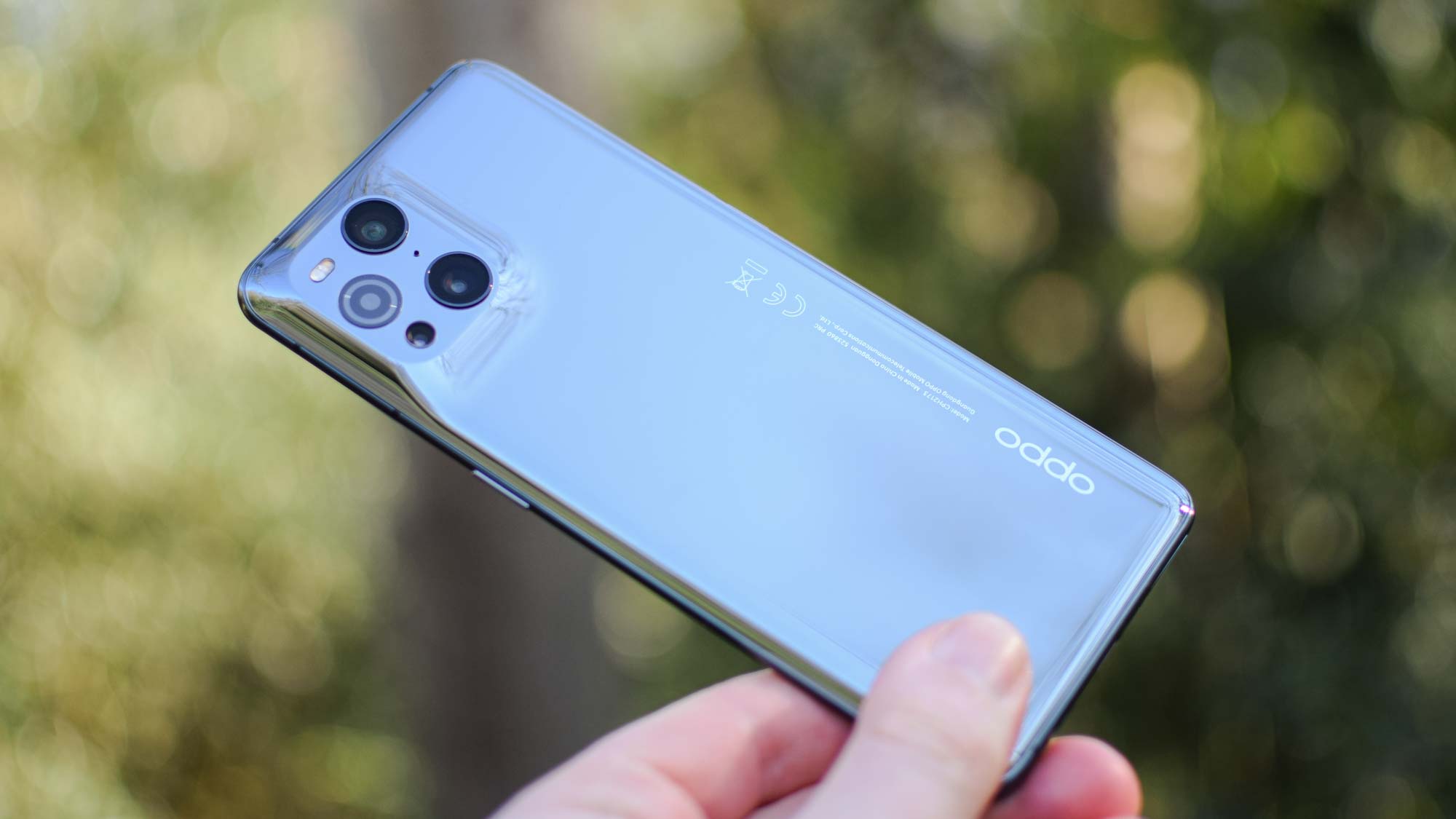Oppo reportedly developing its own chips — and that could be big for OnePlus
We could see custom Oppo chips soon by 2023, which would really help OnePlus

Here at Tom’s Guide our expert editors are committed to bringing you the best news, reviews and guides to help you stay informed and ahead of the curve!
You are now subscribed
Your newsletter sign-up was successful
Want to add more newsletters?

Daily (Mon-Sun)
Tom's Guide Daily
Sign up to get the latest updates on all of your favorite content! From cutting-edge tech news and the hottest streaming buzz to unbeatable deals on the best products and in-depth reviews, we’ve got you covered.

Weekly on Thursday
Tom's AI Guide
Be AI savvy with your weekly newsletter summing up all the biggest AI news you need to know. Plus, analysis from our AI editor and tips on how to use the latest AI tools!

Weekly on Friday
Tom's iGuide
Unlock the vast world of Apple news straight to your inbox. With coverage on everything from exciting product launches to essential software updates, this is your go-to source for the latest updates on all the best Apple content.

Weekly on Monday
Tom's Streaming Guide
Our weekly newsletter is expertly crafted to immerse you in the world of streaming. Stay updated on the latest releases and our top recommendations across your favorite streaming platforms.
Join the club
Get full access to premium articles, exclusive features and a growing list of member rewards.
Oppo, the company behind the Oppo Find X3 Pro and OnePlus' new parent company, is reportedly developing its own smartphone chips by 2023/24.
That's right, another smartphone company is looking to try and make its own chipsets, according to sources speaking to Nikkei Asia. A change as fundamental as a whole new chipset is a big deal, and marks the second major manufacturer to try to ditch Qualcomm just this year. But with Oppo having close ties to OnePlus and other smartphone companies, this development effort could have big ramifications for multiple Android phones.
- These are the best Android phones right now
- Plus: Apple iMac 2022 just tipped with these killer specs
A 3-nanometer beast
Nikkei's sources add that Oppo wants to work with TSMC, the same chip maker behind Apple's A-series mobile silicon, and make the chip with a 3-nanometer process. Currently the leading chips on the market use a 5-nanometer process, so Oppo would in theory end up at the forefront of chip technology when its own chips appear in two to three years.
Google has gone its own with the Google Pixel 6 with its new Tensor chip. Apple has had its own silicon for the iPhone with the A-series, and other companies like Huawei have previously developed their own chips when they didn't fancy buying silicon from Qualcomm or MediaTek. Samsung develops its own Exynos chips, but is in an unusual in-between zone since it currently uses Qualcomm Snapdragon in the U.S. to avoid the cost of licensing necessary modem technology from Qualcomm.
The benefit of a phone maker designing its own chips are that you can in theory achieve greater harmony between hardware and software, with greater total control over how the two work together. Again, Apple is the primary example of this with how beautifully iOS and the A-series chips work together with the iPhone 13. We're currently testing the Pixel 6, but we'd imagine that Google's phone could be the best way to experience Android 12, and provide further inspiration for Oppo's future phones and ColorOS iterations.
What this could mean for OnePlus
What this could mean for the end-user might be, in the best scenario, new Oppo phones that offers unique and powerful new abilities while addressing existing weaknesses. Oppo in particular might be able to bring its already good photography abilities up to par with Samsung and Google with a proprietary processor, alongside the algorithms and image signal processors (ISPs) that are also mentioned by Nikkei's sources.
Equally, Oppo may want to design a high-performance chip that could take on the incredible might of the Apple A-series. It's hard to say at this point precisely what Oppo is aiming for based on the limited rumors, but the point is that it's free to pursue its own hardware priorities, which is great news for Oppo fans and Android users in general.
Get instant access to breaking news, the hottest reviews, great deals and helpful tips.
However, the biggest impact for U.S. and U.K. users may actually come via OnePlus. OnePlus and Oppo have undergone a merger this year to unify the two company's hardware and software development teams, which should mean OnePlus would have access to whatever chips Oppo designs, and therefore use them in future phones..
That would be important since Oppo doesn't have a U.S. presence, and only a small one in the U.K. compared to the more established OnePlus brand. Considering OnePlus' phones, especially this year's OnePlus 9 and OnePlus 9 Pro, are already in our best Android phones and best phones overall lists, custom silicon could help push these phones higher. We'd love to see a custom OnePlus chip if it could give its photography abilities a further boost.
Oppo and OnePlus' stablemates at BBK Electronics, including Vivo and Realme, should also benefit from these chips since the companies have regularly shared other parts and features. This would be particularly exciting for Realme, as it's a budget-focussed brand that would really benefit from a unique chipset to stand out from a crowd of similar, Snapdragon and Dimensity-powered phones. So no matter your budget or your location, you could still get to see the benefits of Oppo's rumored decision, just perhaps with a non-Oppo badge on it.

Richard is based in London, covering news, reviews and how-tos for phones, tablets, gaming, and whatever else people need advice on. Following on from his MA in Magazine Journalism at the University of Sheffield, he's also written for WIRED U.K., The Register and Creative Bloq. When not at work, he's likely thinking about how to brew the perfect cup of specialty coffee.
 Club Benefits
Club Benefits










